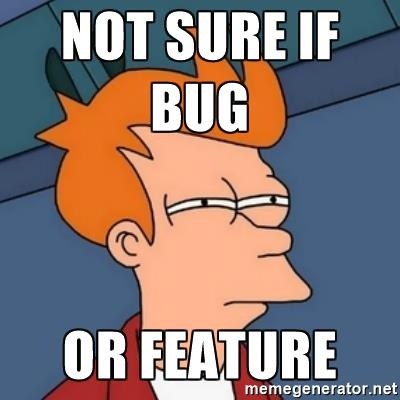Originally comment on The Final Appeal, by René Alix:
https://insurgency.quora.com/The…
I can’t say whether this seems like a fair judgment to me, and I won’t even say that it might be. I am not casting aspersions on the person making this judgment — it might well seem perfectly fair to them, and they might even be as unbiased as one could be. I might make the same decision in their position. I have myself worked as a moderator for contentious groups and realize very well what a demanding and thankless job this is, and how many people are jerks and try to abuse the system.
The problem for me is that the whole process is bunk because it starts out with bunk, because it lacks transparency in several critical areas.
- Quora does not properly onboard people, so their first violations are usually a complete surprise. There is no feedback to questions asked when appealing.
- Quora’s rules are also unusually strict and complex, particular compared to the internet at large, so they are not intuitively obvious (though “intuitively obvious” is from my experience also about as likely as “common sense” — one has to spell out things, and there will always, always be “rules lawyers” who live to find the loop holes). In any case, Quora’s rules are more opaque than what people are used to, and are less well spelled out.
- Quora does not tell a person what explicitly they did wrong, so it is difficult to discern what exactly one needs to avoid in the future. I am smarter than the average bear, I am unlikely to act like an arse in the first place, and it took me months to get a handle on BNBR — had it not been for Jennifer Edeburn I might still not have it. I can tell from reading this blog that most people are like I was, they don’t really get it yet.
- But Quora forces people who got a violation to acknowledge that they did wrong before allowing them to continue to use the service. Using that later as a reason for dismissing somebody’s final appeal is disingenuous.
- The appeals process is completely broken from the user’s point of view. Most people I know don’t even appeal at all anymore because they never got a response before. They might therefore have violations on record that were never examined by a human..
- The final appeal is, for most people, not an option because they don’t even know about it. You have to either be an insider, or an insurgent to know about it.
- There is no public accountability of Quora Moderation. There’s not even a hint of it. There are no official examples of what counts as a violation and why. Discussion of a banned person’s record is forbidden (for some legitimate reasons, but this increases insecurity).
- Policies are not applied across the board. Clear policy violations are on view widely, often perpetrated by Top Writers. How can the average user learn from that?
- It is difficult for a regular user to find help for dealing with Quora Moderation. There is no FAQ; another way in which Quora differs from the internet at large. There is no official help that is clearly advertised — Quora’s “evergreen” questions ensure that long-outdated information from official Quora accounts sticks around, and Quora search is not very smart. Sure, there are the Collapse Detectives, a community initiative, not supported by Quora, but how many people find them at all, never mind easily? How many don’t realize that they get just one appeal, and come seek help too late?
I’m not gonna throw legal terms around because I am not a lawyer and Quora Moderation is not a court of law. But I am unwilling to grant them the high road when they do so little to educate people on what it would take to avoid future violations. Yes, no doubt there are “bad apple” users. But most I encounter who are frustrated with Quora Moderation are nothing of the kind.
